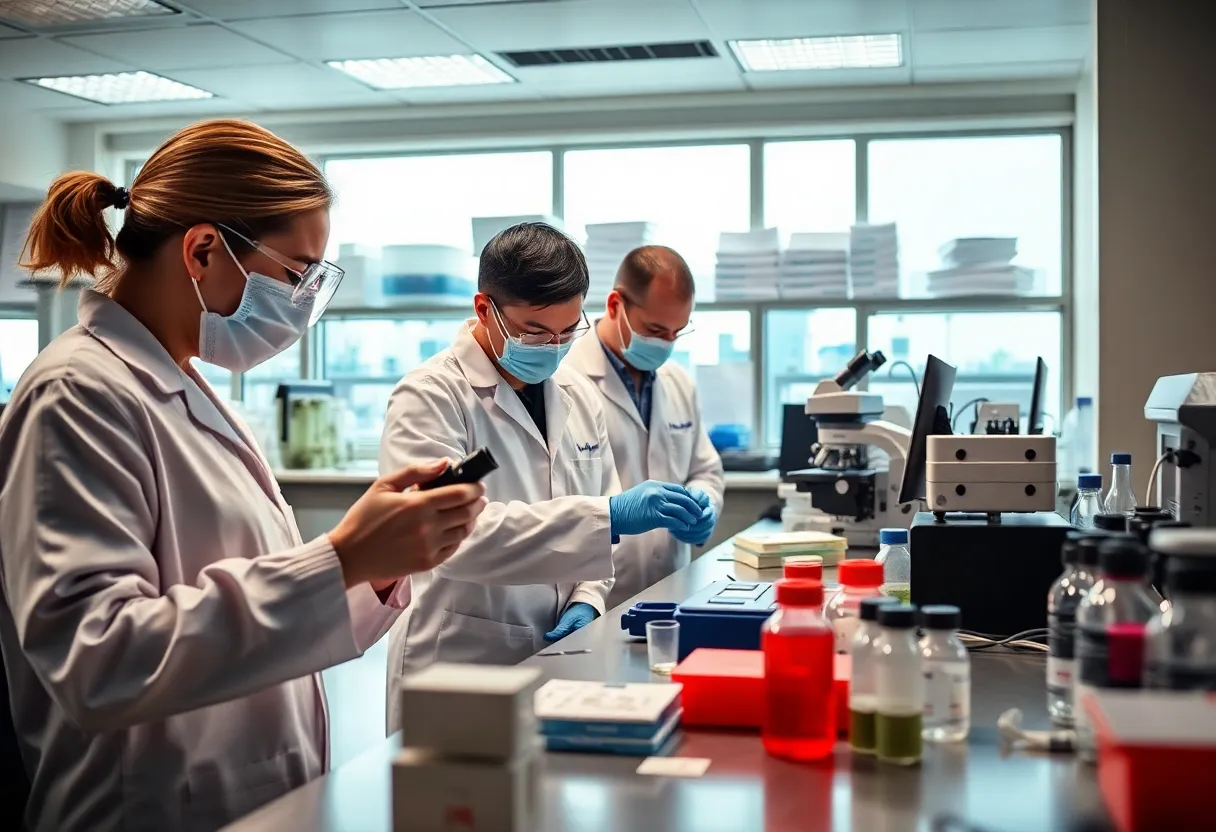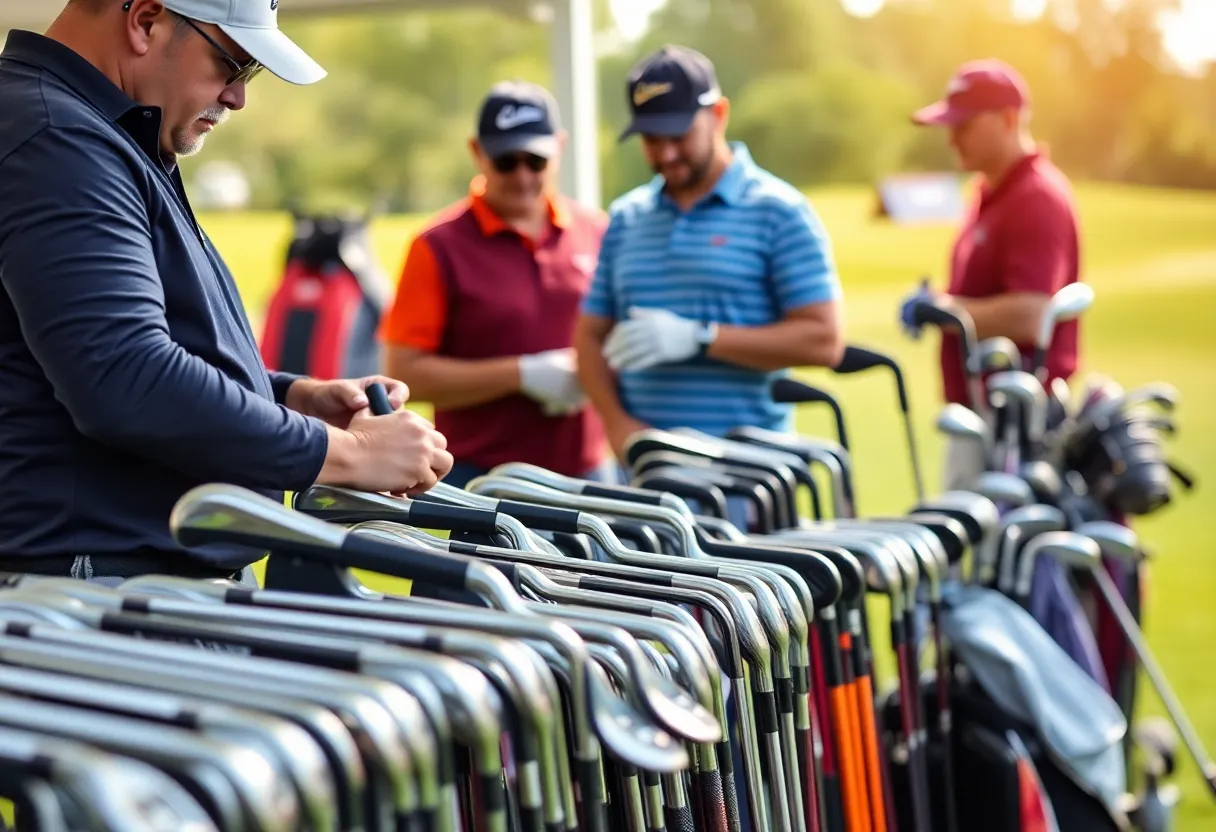Garland, Texas, September 17, 2025
News Summary
The Texas Department of Public Safety Crime Laboratory in Garland has seen a significant workload in 2024, processing nearly 22,000 cases, including a cold case breakthrough with the indictment of a suspect linked to the murder of Mary Moore Searight. The lab, staffed by 70 scientists, operates across 42 counties in Northeast Texas, handling vital forensic testing and supporting law enforcement. Frequent public engagement and quality control measures further enhance community trust in forensic practices.
Garland, Texas — The Texas Department of Public Safety Crime Laboratory in Garland has played a central role in forensic testing and a recent cold case breakthrough, handling nearly 22,000 cases in 2024 and employing a team of 70 scientists who serve evidence submitted from about 42 counties in Northeast Texas.
Key development and lab workload
The lab recently identified a suspect in the nearly 30-year-old murder of 86-year-old Mary Moore Searight, a case that was reinvestigated and linked to DNA evidence collected during renewed review. The suspect was indicted on December 12, 2024. The lab’s 2024 workload included almost 22,000 processed cases, routine handling of sexual assault kits from 40 to 42 counties with a maintained 90-day turnaround goal, and input of DNA profiles from convicted individuals into the Combined DNA Index System (CODIS). The laboratory’s work supports law enforcement investigations and the broader criminal justice system across nearly 42 counties in the region.
Details of the cold case investigation
The murder of Mary Moore Searight involved sexual assault and strangulation; Searight died from her injuries three days after the attack. The suspect had been a tenant of the victim and was interviewed by police early in the investigation, during which efforts were made to conceal an injury. In 2021 the case was flagged under the Sexual Assault Kit Initiative (SAKI) for further review. Reinvestigation in 2023 yielded DNA evidence that linked the suspect to the crime and ultimately led to the 2024 indictment.
Laboratory operations and services
The Garland lab conducts a range of forensic analyses to support criminal investigations, including:
- Biology and DNA
- Digital and multimedia evidence
- Firearms and tool mark analysis
- Friction ridge (fingerprint) analysis
- Forensic document examination
- Toxicology and blood alcohol testing
- Testing of weapons, bullets, and controlled substances
Crime scene investigators collect and submit evidence to the lab, where items are secured in a vault until testing begins. The lab also operates a program that allows survivors of sexual assault to anonymously monitor the status of their evidence through the testing process.
Public engagement and staffing
In recognition of National Forensic Science Week, the lab hosted public tours aimed at educating the community about forensic work and the processes involved. The laboratory employs 70 scientists under the management of Clare Moyers, who brings over 17 years of experience in the forensic field and oversees operations across disciplines and casework priorities.
Expectations and public perception
Public interest in forensic science has grown, driven in part by crime television shows and popular media. The lab reports that real forensic work is more time-consuming than media portrayals suggest; thorough testing and quality controls extend processing times to ensure reliable results.
Quality control, policy changes and oversight
The lab has implemented procedural changes following concerns raised by a separate incident involving an analyst whose inconsistent testimony about a 2013 laboratory error jeopardized numerous drunken driving cases. That analyst was transferred to the Austin lab. In response to that situation, the Garland laboratory and DPS implemented several reforms, including:
- Enhanced disclosure policies to improve transparency with prosecutors and defense counsel.
- Required refresher training on courtroom testimony and documentation for forensic scientists.
- Regular meetings between prosecutors and DPS forensic scientists to clarify procedures and communication.
- Compliance with statutes that require notification to attorneys of any lab errors relevant to their cases.
The Texas Forensic Science Commission remains involved in ongoing discussions aimed at improving forensic practices statewide and ensuring that testing and testimony meet legal and scientific standards.
What this means for the community
The Garland DPS Crime Laboratory’s combination of broad forensic capabilities, expanded transparency measures, and community outreach seeks to strengthen investigative outcomes while addressing public concerns about accuracy and timeliness. Continued investments in training, procedural clarity, and victim-centered programs such as anonymous evidence tracking are intended to enhance confidence in forensic processes and support timely justice.
Frequently Asked Questions
What geographic area does the Garland DPS Crime Laboratory serve?
The lab processes evidence from nearly 42 counties in Northeast Texas.
How many cases did the lab process in 2024?
The laboratory processed nearly 22,000 cases in 2024.
How many staff work at the lab?
The lab employs a team of 70 scientists and is managed locally by Clare Moyers, who has over 17 years of forensic experience.
What types of forensic testing does the lab perform?
Testing includes biology and DNA, digital and multimedia evidence, firearms and tool mark analysis, friction ridge analysis, forensic document examination, toxicology and blood alcohol testing, as well as narcotics and weapon testing.
How are sexual assault kits handled?
The lab processes sexual assault kits from 40 to 42 counties and maintains a goal of a 90-day turnaround for results. There is also an anonymous tracking program that allows survivors to monitor the status of their evidence.
What changes were made after the analyst testimony issues?
Changes include enhanced disclosure policies, mandatory refresher training on courtroom testimony, regular meetings between prosecutors and DPS scientists, and adherence to statutes requiring notification of lab errors to attorneys. The Texas Forensic Science Commission continues to participate in oversight and improvement efforts.
| Feature | Details |
|---|---|
| Location | Garland, Texas |
| Staff | 70 scientists |
| Service area | Nearly 42 counties in Northeast Texas |
| 2024 case volume | Nearly 22,000 cases processed |
| Sexual assault kit coverage | 40–42 counties, 90-day turnaround goal |
| Major forensic disciplines | DNA, biology, digital evidence, firearms, friction ridge, documents, toxicology, blood alcohol |
| Victim services | Anonymous sexual assault evidence tracking program |
| Notable case | Cold case identification and 2024 indictment linked to DNA evidence |
| Reforms and oversight | Enhanced disclosures, training, regular prosecutor-scientist meetings, Texas Forensic Science Commission involvement |
Deeper Dive: News & Info About This Topic
HERE Resources
Additional Resources
- NBC DFW: Texas DPS Garland Crime Lab
- Forensic Magazine: SAKI Program Helps Solve Cold Case
- KSAT: Texas Cold Case Murder Solved
- Dallas News: Garland Crime Lab Testimony Changes
- KWTX: DPS Lab Helps Solve Cold Case
- Wikipedia: Forensic Science
- Google Search: Forensic Science News
- Google Scholar: Forensic Science
- Encyclopedia Britannica: Forensic Science
- Google News: Forensic Science Latest

Author: STAFF HERE DALLAS WRITER
The DALLAS STAFF WRITER represents the experienced team at HEREDallas.com, your go-to source for actionable local news and information in Dallas, Dallas County, and beyond. Specializing in "news you can use," we cover essential topics like product reviews for personal and business needs, local business directories, politics, real estate trends, neighborhood insights, and state news affecting the area—with deep expertise drawn from years of dedicated reporting and strong community input, including local press releases and business updates. We deliver top reporting on high-value events such as the State Fair of Texas, Deep Ellum Arts Festival, and Dallas International Film Festival. Our coverage extends to key organizations like the Dallas Regional Chamber and United Way of Metropolitan Dallas, plus leading businesses in telecommunications, aviation, and semiconductors that power the local economy such as AT&T, Southwest Airlines, and Texas Instruments. As part of the broader HERE network, including HEREAustinTX.com, HERECollegeStation.com, HEREHouston.com, and HERESanAntonio.com, we provide comprehensive, credible insights into Texas's dynamic landscape.




